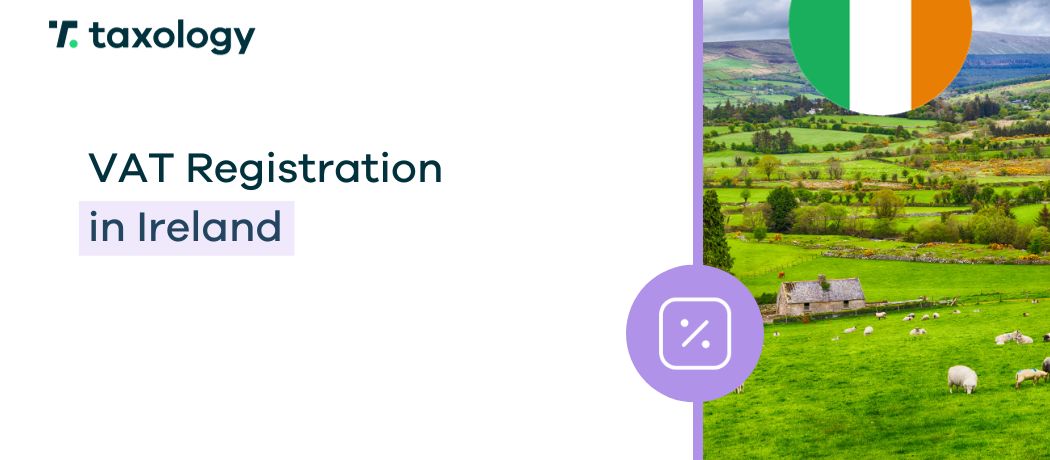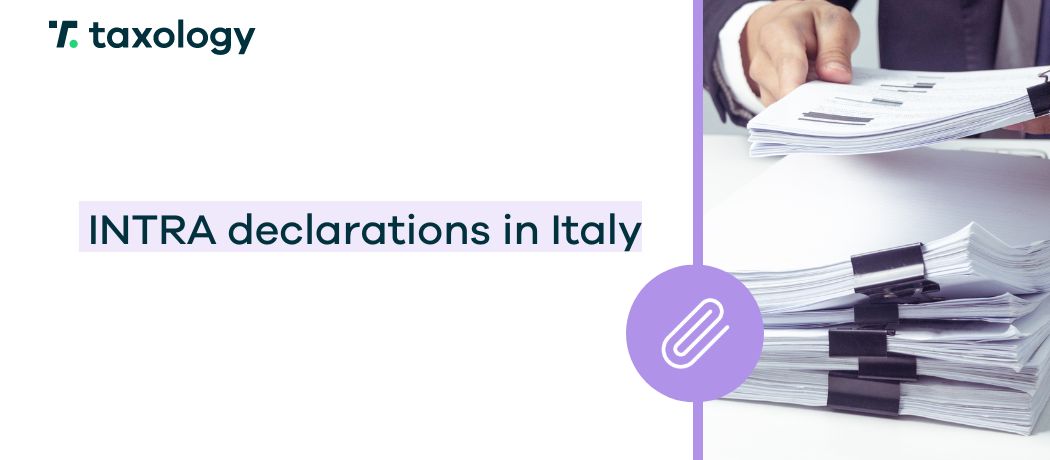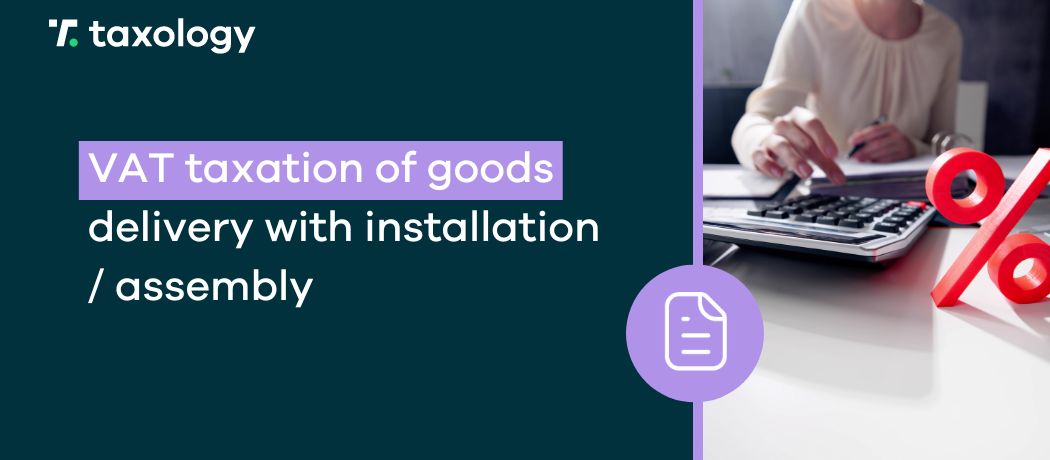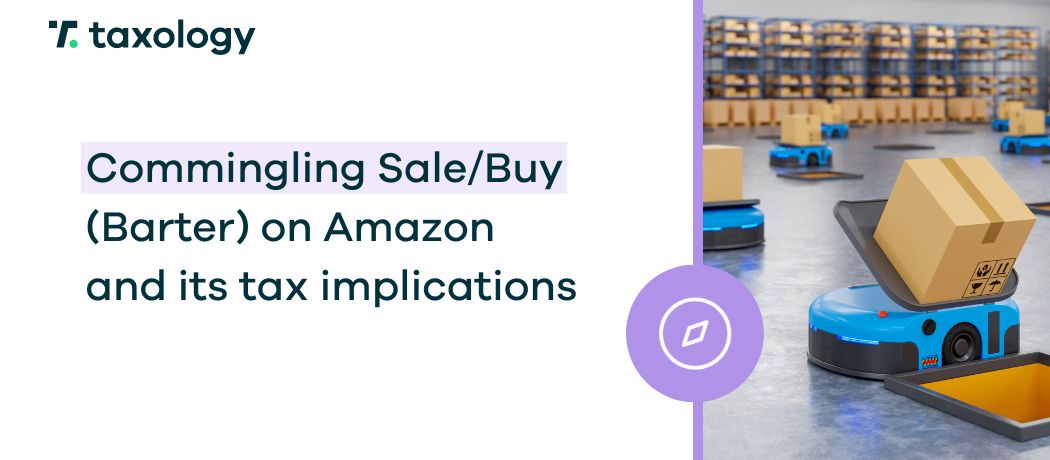Italy ranks as the fourth largest e-commerce market in Europe in terms of value. It is no surprise, then, that it attracts entrepreneurs looking to expand in this direction. However, […]
Read in: 4 minVAT registration in Ireland
- Last update: 23.02.2024
- Published: 22.08.2023
- Read in: 5 min
VAT (Value Added Tax) plays a crucial role in the tax systems of European Union member countries, serving as a significant source of government revenue. However, its mechanisms and tax rates can vary from one country to another.
Ireland, despite aligning with EU VAT regulations, possesses its unique set of legal requirements and procedures that businesses must understand and certain criteria that must be met if they intend to operate within the country. This underscores the importance of VAT registration in Ireland, a subject we explore in detail in the article below.
From the following article you will learn more about:
- What are the applicable VAT rates in Ireland?
- Who is required to register for VAT in Ireland?
- What does the VAT registration process look like in Ireland?
- What is the name of the Irish tax office and where is it located?
- What documentation is necessary for acquiring an Irish VAT number?
- What is the format of the Irish VAT number?
- What are the timeframes and deadlines associated with VAT settlements in Ireland?
VAT Ireland
The standard VAT rate in Ireland has been effective since 2012 and stands at 23%. Furthermore, there are also four supplementary VAT rates in place.
Reduced VAT rates in Ireland
Ireland maintains two reduced VAT rates at 13.5% and 9%, along with a super-reduced rate of 4.8% and a zero VAT rate.
For further details, including the types of services and goods subject to each VAT rate in Ireland, please refer to our article titled “What is the applicable rate of VAT in Ireland?“.
When is it mandatory to register for VAT in Ireland?
The Irish VAT system adheres to the regulations set by the European Union. Consequently, scenarios requiring VAT registration in Ireland are akin to those in other EU nations, which include:
- engaging in the import and export of goods with third countries,
- selling goods and services within Ireland,
- warehousing goods in Ireland and shipping them to customers in other EU Member States,
- importing goods from other EU countries into Ireland (intra community acquisitions and supplies),
- conducting distance sales of goods within the EU, exceeding the threshold of €10,000.
It’s worth emphasising that, in the last point mentioned above, we are discussing the sale of products to consumers in other member states of the European Union. Starting from July 1, 2021, this limit determines the total sales of goods to consumers from different EU member states. Until this limit is reached, entrepreneurs have the flexibility to levy the VAT rate of their country of registration for their B2C transactions, depending on the location where the goods and services are sold. However, once the sales exceed the specified intra-community distance sales of goods limit, entrepreneurs are obligated to apply the VAT rates relevant to the country where the sale is made and must settle their sales in compliance with local regulations or under the VAT OSS procedure.

Need help with VAT?
Contact us and our VAT Compliance specialists will be happy to support you and your business. Regardless of whether it is about registration, settlements, declarations, VAT OSS or VAT EU.
Schedule a consultationIrish VAT registration process
If you wonder how Irish VAT registration process look like, here’s the answer.
In Ireland VAT registration can be completed online through the Revenue.ie website. Conversely, businesses from outside Ireland must go through the traditional postal registration method and submit a th application in a paper form.
The tax office in Ireland
The Irish tax office, referred to as The Revenue Commissioners or Na Coimisinéirí Ioncaim in Irish. The documents, in turn, should be sent to the following address: Business Taxes Registrations, Office of The Revenue Commissioners, P.O. Box 1, Wexford.
The documents required for VAT registration in Ireland
The basic document required for VAT registration in Ireland is the registration application form, available in four different versions:
- TR1 – for individuals, sole traders, trusts and partnerships.
- TR2 – for limited liability companies.
- TR1 (FT) – for non-resident traders, individuals, partnerships, trusts or unincorporated bodies.
- TR2 (FT) – for non-resident companies.
However, apart from the application form, as part of the VAT registration process to secure an Irish VAT number, you may need to submit, among other items:
- a document confirming activity in Ireland, such as invoices stating the details of Irish contractors,
- documentation confirming cooperation with suppliers, such as invoices for courier services or agreements with delivery companies,
- confirmation that the responsible person has a system for documenting the supply of goods and services.
PPS number
In Ireland, individuals, Irish residents, businesses, and citizens are required to possess a Personal Public Service Number (PPS), also known as the Revenue and Social Insurance Number (RSI). This serves as a social insurance identifier and is used for accessing welfare benefits, public services, and healthcare assistance. It also functions as a unique taxpayer identification number.
Importantly, for businesses seeking a VAT number in Ireland, a PPS number may be necessary, but this requirement is not universal. It becomes mandatory when, for example, a sole trader is registering or when an overseas company plans to hire Irish employees or establish a presence in the country. Documentation such as utility bills is required to provide evidence of these activities.
In contrast, e-commerce entrepreneurs and businesses operating in this area may not always require a PPS number for VAT registration. However, if it becomes necessary, the application must be submitted by a representative from the company’s board of directors or a director.
It’s important to emphasise that each VAT registration situation in Ireland should be evaluated individually, and seeking guidance from a specialist is advisable.
Irish VAT number
One may think, that there are three different VAT numbers in Ireland. However, the Irish VAT number is comprised of 8 characters and can be in one of three possible formats:
- The first 7 characters are digits and the last character is a letter.
- the 1st and 3rd to 7th characters are numbers and the 2nd and last are letters.
- the 1st and 3rd to 7th characters are digits, the last is a letter and the 2nd is a “+” or “*”.
In turn, the prefix of the Irish VAT number is ‘IE’.
VAT obligations in Ireland
Just like in all EU Member States, Ireland is obligated to apply its national VAT rates to sales, settle VAT, and file VAT returns.
Moreover, one may submit vatious tax returns via Revenue Online Service (ROS), which is The Irish Revenue Commissioners’ website for that purpose.
Deadlines for filing VAT returns and paying VAT in Ireland
The deadline for submitting a VAT return in Ireland is the 19th day of the month following the taxable period, and the standard VAT accounting period spans two months. However, there is an option to extend this interval to a multiple of two months, and this can be achieved by:
Companies with an annual VAT threshold amount not exceeding €3,000. In this case, they are obligated to file a VAT return every six months.
Companies with an annual VAT amount ranging from €3,001 to €14,400. In such instances, they are required to submit a VAT return every four months.
Additionally, all VAT taxpayers in Ireland must file an annual VAT return in the form of an RTD (Return of Trading Details).
VAT registration Ireland - summary
Ireland’s VAT system (Value Added Tax), although aligned with European Union regulations, exhibits its own distinct characteristics and tax rates. Any business aiming to operate within Ireland, whether involved in exports, imports, or domestic sales, should take the time to thoroughly acquaint themselves with the specific local regulations. A comprehensive understanding of and adherence to these regulations are pivotal in preventing potential issues with the local tax authorities and ensuring the seamless flow of goods and services.
Furthermore, it’s crucial to remember that businesses conducting VAT-taxable activities within Ireland may, under certain conditions, be obligated to apply Irish VAT rates to their B2C transactions. These transactions must then be settled within the country or under the VAT OSS procedure.
As a result, you’ll have to secure an Irish VAT number, and you can achieve this by undergoing the Irish VAT registrations’ processes in Ireland, which is accessible to non-Irish businesses through conventional mail correspondence (paper applications).
If your business plans to sell to Irish consumers or within Ireland, you may also need this registration, and we’re here to provide support in this regard. If you’d like us to handle this process on your behalf, please get in touch with us, and our team of VAT Compliance specialists will take care of it for you. We can assist with various aspects, including VAT returns, settlements, VAT OSS, and VAT EU matters. If you require assistance, don’t hesitate and schedule a free consultation with us.




